How Internet News Censorship in China Silences the People’s Song
How Internet News Censorship in China Silences the People’s Song
This is a thesis when I studied in the ELS.
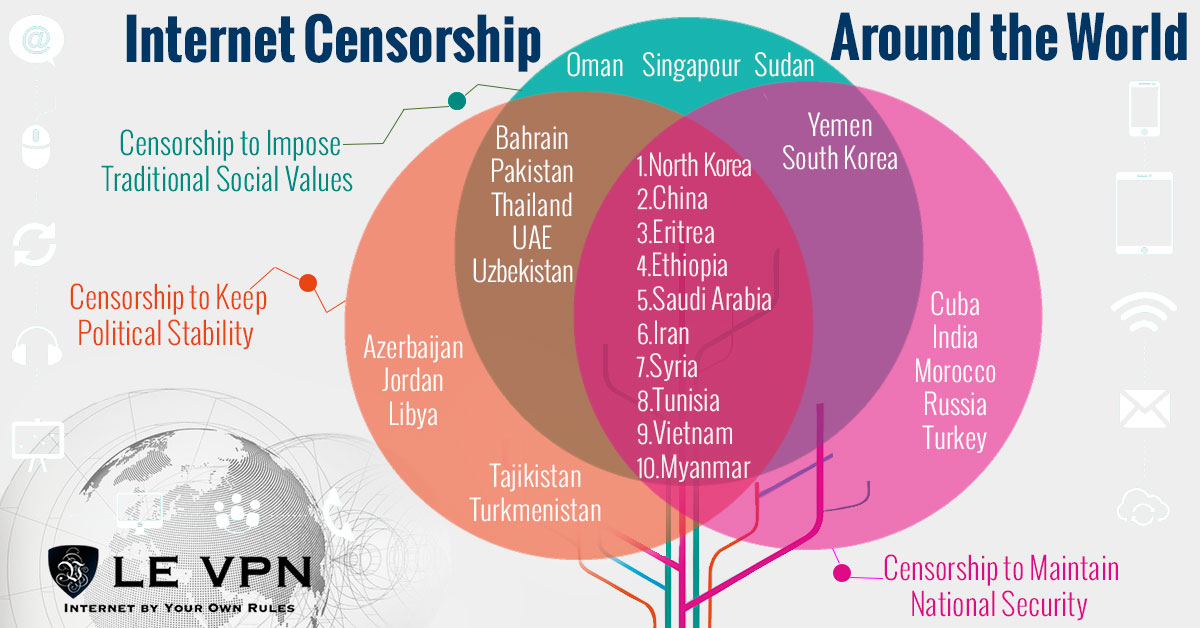
Introduce
Last month, my friend Carrier went back to China from the United States after she had been living the United States for more than three years. She complained to me about the Internet in her house but not because of the speed of the Internet. She found that the Google Mail and Facebook were inaccessible when she wanted to access to Google Mail to receive some email from her boss and to contact friends through Facebook. As a computer engineer in China, I have never been puzzled by this since I can use a lot of ways to access to Google or Facebook. Is it challenging to access to Google and Facebook in China? Curiosity pushed me to investigate further. When I asked my parents and some high school classmates about whether they knew how to avert the government blocking access to Google, most of them said that they didn’t know how to access to Google in China even though they knew the Google search engine is most famous in the world. After doing some research, I found that blocking Google is only one of many blocking events involving Internet news censorship in China.
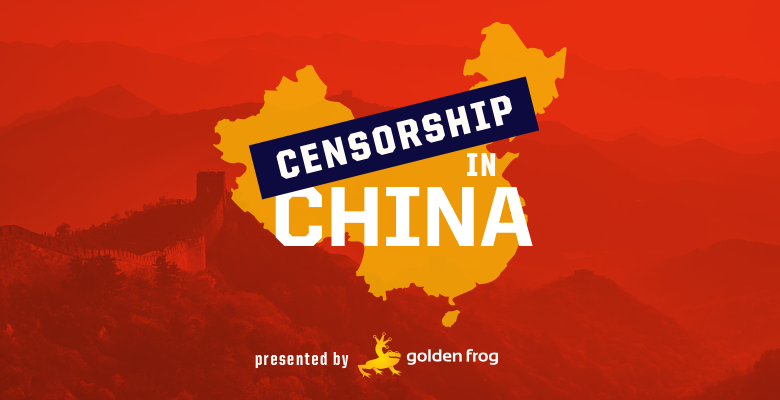
More surprisingly, Google chose to enter the Chinese market in 2005, but Google suddenly announced that they decided to close the office in China in 2010. According to a new approach to China from the Google Official Blog, the officer said, “We will be discussing with the Chinese government the basis on which we could operate an unfiltered search engine within the law, if at all. We recognize that this may well mean having to shut down Google.cn, and potentially our offices in China.” (2010). Through the history of the world, it is hard to find a company to break up with significant power in public. However, Google did it and closed their offices in China until 2018. The original reason for this matter is that Google received a lot of notifications from Chinese Government to block some websites and block some keywords involving Chinese politics. However, these blocking announcements didn’t have any Chinese law to support them. Sometimes, the office just got a phone call to Google to require them to block some information. Are these demands from the Chinese government unreasonable in western culture? Is it difficult to understand why Google couldn’t compromise with the Chinese government later? Most western experts believe that Chinese has a severe Internet news censorship to prevent the free spreading through their experience and history (Sorenson, 2013). Nevertheless, using Western values fails to explain why China has a rigorous Internet news censorship without a basic knowledge of Chinese culture and values.
In the section below, I begin to introduce four types of Internet news censorship. I then point out the reasons why the governments need to build the Internet news censorship system in China and why the citizens don’t fight for their freedom on the Internet with the government. I then give the positive and negative about the Chinese censorship policy. Finally, I offer my opinion and conclude.
Types of Internet News Censorship
Nowadays, the Internet news censorship is prevalent in China. How does the Internet censorship work in China? Firstly, we can take the blocking IP as an example. When someone wants to access to the website which is involved in the blocking list of government, the government censorship system will check it and doesn’t respond to the user, and it will pass it to deal with next one (King, 2013). As a result, the user can’t get the response from the server computer because the connection requirement was cut down by government censorship (King, 2013). Besides, the government built The National Firewall to curb the citizens accessing the news from foreign countries (King, 2013). For example, if you live or work in China, you can’t use your computer or smartphone to access to the Youtube or Google websites directly. Also, the government cooperates with big internet and technology companies to ban some news. For example, the government cooperation with Baidu company which is the most significant search engine company in China to block some news which is terrible for some powerful politicians. However, the purpose of the censorship program just helps the government to delete some articles on the Internet. It can’t persecute authors. There are some main types of Internet censorship in China.
Non-transparent Censorship
Ambiguous law
It is so funny that China doesn’t have a clear rule to describe how the Internet censorship system works in China. If you ask The Publicity Department of the Communist Party of China (CCPPD) why the government indicated the Google search must censor the results and remove some issues, they will tell you that Google should filter search results by Chinese laws. But when you ask them about which law these results violated, they just say that the content in these websites endanger the security of the nation, divulges state secrets and disturbs the social order (Sorenson, 2013). However, they can’t precisely inform why Google must ban these sites. In fact, there is no a clear law that explains how the Internet News Censorship works (Sorenson, 2013). Besides, sometimes the censorship not only requires internet companies to delete some articles, but it also needs the companies to help the government to spread some government articles and change the search results to the government official website (Sorenson, 2013). Of course, this requirement is also by law even though you will not know this is what law forever.
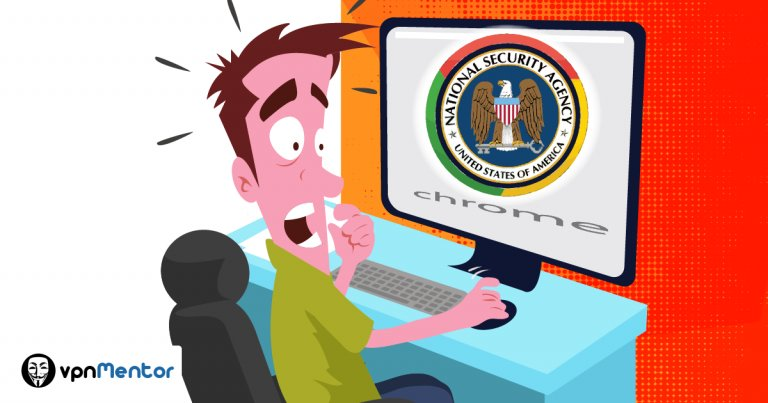
Enforce Internet Real-name system
It also causes fear and narrows the freedom of speech on the Internet. Last year, China government revised the Network Information Management law. After that, each person who uses the Internet in China wanted to post some articles on Internet must correspond to his real name and Chinese identity card number. As the implementation of the Internet real-name system, government efficiently managed the people’s opinion on the Internet. For example, if someone spread rumors or libelous statements, Chinese police easily find their real name and arrest them because the police can ask the internet company to get the private information of rumormongers.
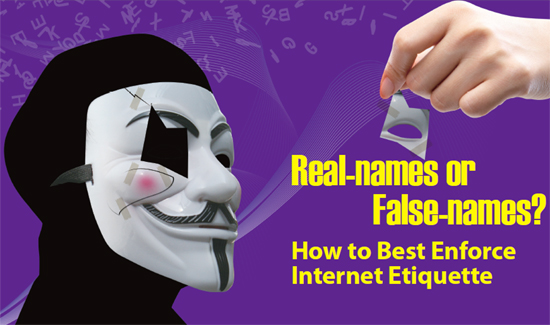
The National Firewall
There are two critical walls in China which are famous in the world. One is Great Wall in the north of China to protect the Chinese citizens in the past. Another is Great Firewall on the internet to constrain the Chinese citizens’ liberalizing. For instance, the government worker said, “These companies which come from foreign countries are welcome to China, but these companies must follow the law. If you don’t accept any Chinese law, then you can’t be allowed to built officer in China.” The policy which doesn’t allow each foreign companies spread these culture and opinion to Chinese society. It is not difficult to understand, but it bans the freedom in the china. These policies make Chinese people don’t know how to judge the events which happened in China. Besides, these policies also cause some people don’t have a chance to learn from the international company and their culture. So, this is a wall which let some Chinese people disable in the Mind. It is very dangerous for them. If they can’t catch the library in the world, they can’t catch up with some foreign countries’ people in the future.
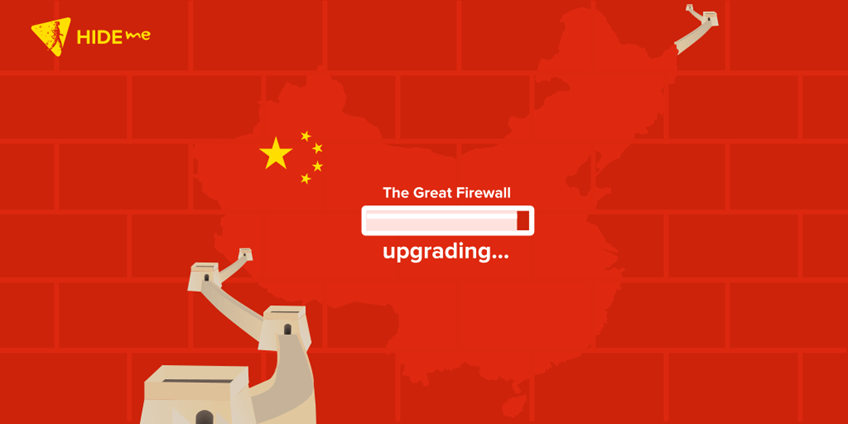
Complex Censorship System to Guide public opinion
In China, Internet news censorship is complicated and methodical. This censorship system looks like an inspection machine. It is working as following steps.
Do censorship by themselves. Chinese netizens have realized that a lot of words cannot send on the website, like Weibo, QQ. Because when you wrote some sensitive word or title and wanted to post them on a site, you would fail to send these words because the censorship system may notice you about “Your post has some sensitive words, so you can not post it.”. Sometimes, even though you posted this article, but some worker of this website will delete it. However, this system doesn’t tell you which words you need to change it. Therefore, Chinese netizens have learned replaced some sensitive words out of the similar words or deleted this part before they post the message. If you live in this situation for a long time, this censorship will make you built a behavior about checking your message before you want to pose it even though there is no censorship anymore. For example, a netizen would publish a message containing “Hu Jintao”, which was the last president of China. He may use some similar word to replace it because the president name in some websites is the sensitive words and you can’t discuss them with some bad news on the site.

Strict Internet News Censorship
There is more than one billion Internet population in China (Xu, 2011). Even though a small part of netizens intentionally spread a rumor, it also has a significant influence on society safety and economy. For example, according to the news (December 2003), although there was no one person killed by atypical pneumonia (SARS) in the United States in 2003, panic with the rumor about SARS spread each side in the United States. In fact that no one to listened to the truth and the experts and they didn’t believe everyone. They didn’t go to the Chinese restaurant and close some Chinese markets because of these rumors. (LEE et al., 2003)If something like this happens in China, this will set off riots nationally even though only twenty percent of the people believe these tales. So, each country needs to build an Internet censorship system stop the rumor spread if they want to quell public panic.
Business. If Google and Facebook were allowed to develop in China in the last ten years, Google and Facebook would have monopolized the search engine field and instant message field in China. Subsequently, Tencent (the same as Facebook) and Baidu (the same as Google) company would not rise. As a result, Chinese internet industry would be monopolized by Google and Facebook which are foreign companies that belong to the United States. So these companies can earn a lot of money from China and wouldn’t give any space for any Chinese companies. It may damage local internet companies. Therefore, after the government built The National Firewall, it created a lot of opportunities for the Chinese company to improve their technique.
Cultural and social protection. If Facebook and Google had controlled the domestic cultural market in China, they would have exported their culture and values through China, and it may cause a terrible influence on traditional Chinese Culture. In social media field, it is easier to control the media and public opinion direction.
National security. Taking Huawei company as an example, Huawei has recently prepared how they can enter the United States market. However, the American government believes that their products will pose a threat to the United States because they suspect that this is a Chinese company which may be controlled by the Chinese government. As one of the largest company in the world, Google owns a sizeable amount of personal information data. When they occupy Chinese market, they may damage the Chinese information safety because this firm belongs to another country. From the government points of view, they can’t believe these companies can be independent of their government.
Conclusions and Future Study
When ostrich encounters their enemy in the desert, they would bury their head in the sand and think that the enemy can not see them.The Chinese government built an Internet wall like an ostrich shielding of the best-known websites, such as Google. Ironically, the Internet wall is useless to block libertarian news. Most Chinese people know that even the government blocks “thing,” someone also can read it in the foreign countries. Nowadays, the international information exchange is frequent. For example, there were 2.59 million Chinese people who traveled to the US during last year. They can easily read every new they liked. Also, some Chinese people often over the Internet wall to read foreign news. As they say, that “Good news never goes beyond the gate, while bad news spread far and wide.” The more blocking, the more attention.
The Chinese government is blocking some famous websites in the world just because they want to protect small, influential group and individual. Some expect who supports the Internet control policies in China, has often been cited a word, “I have no way to change you, but I have the right to choose our friends.” said by LuHui, the director of the state Internet information office. He is the manager of the Chinese Internet as most foreign media. He said, “we are welcome any Internet company to enter the Chinese market, but you must observe two regulations: don’t harmful on China’s national security and don’t harmful on Chinese consumers’ rights.” According to his opinion, the Chinese government shielding Google Google, Facebook, Twitter, YouTube, and thousands of websites such as Wikipedia Wikipedia, is to protect " the consumers’ rights” and “national security” But the analysis of the above in this essay, we already know that it is not entirely correct. This censorship system only works for small group and individual interests to block world-famous sites to maintain a popular figure.
If this country always hides in the back of the internet walls by governments, it may be relatively safe. But they can’t catch up with other advanced power in the world in the future. Besides, it also unable to obtain the respect of other nations or countries. “I have no way to change you, but I have the right to choose friends, " said by LuHui is good, but this sentence also applies to the Chinese people. They will have the right to choose which news they want to read.
References
A new approach to China. (2010, January 12). Retrieved from https://googleblog.blogspot.com/2010/01/new-approach-to-china.html
In U.S., Fear Is Spreading Faster Than SARS. (2003, April 16). Retrieved from http://www.nytimes.com/2003/04/17/world/the-sars-epidemic-asian-americans-in-us-fear-is-spreading-faster-than-sars.html
King, G., Pan, J., & Roberts, M. E. (2013, 05). How Censorship in China Allows Government Criticism but Silences Collective Expression. American Political Science Review, 107(02), 326-343. doi:10.1017/s0003055413000014
Qiu, J. L. (1999). Virtual censorship in China: Keeping the gate between the cyberspaces. International Journal of Communications Law and Policy, 4(1), 25.
Revised U.S. Surveillance Case Definition for Severe Acute Respiratory Syndrome (SARS) and Update on SARS Cases, United States and Worldwide, December 2003. (n.d.). Retrieved from https://www.cdc.gov/mmwr/preview/mmwrhtml/mm5249a2.htm
Sorenson, A.(2013). Internet Censorship in China. Mankato, MN:Undergraduate Research Symposium.
Xu, X., Mao, Z. M., & Halderman, J. A. (2011). Internet Censorship in China: Where Does the Filtering Occur? Passive and Active Measurement Lecture Notes in Computer Science, 133-142. doi:10.1007/978-3-642-19260-9_14